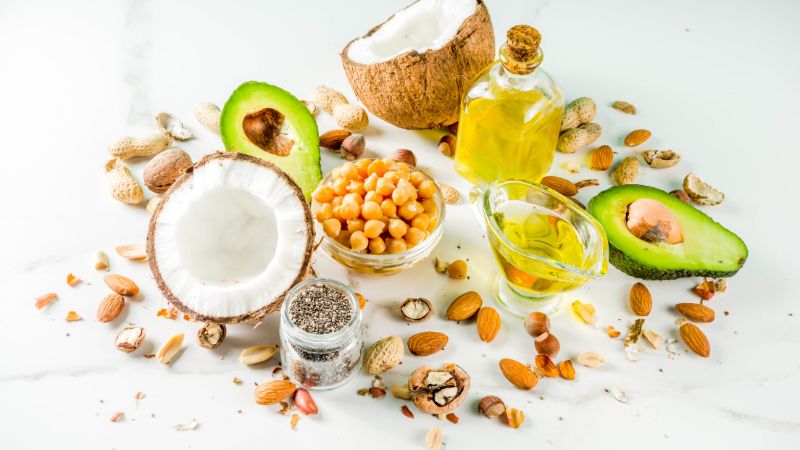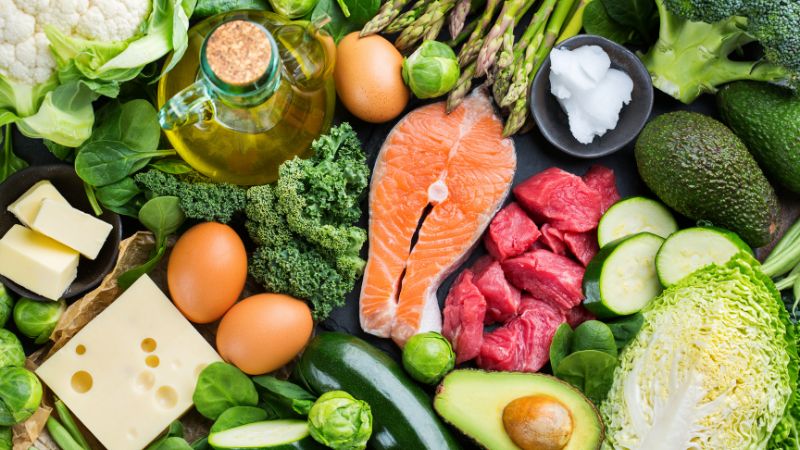Not all habits are equally beneficial for your health. Some habits that are perceived as healthy can actually contribute to weight gain. Let’s explore 7 seemingly healthy habits that may be sabotaging your weight loss efforts:
1 Overindulging in Fruit Juices
While fruit juices can provide your body with vitamins, minerals, and antioxidants, excessive consumption can have negative effects on your weight.
Fruit juices contain natural sugars, and consuming large amounts can lead to spikes in blood sugar levels, triggering increased appetite and calorie intake. Additionally, fruit juices are calorie-dense, and drinking them in excess can result in consuming more calories than your body needs.
The juicing process removes some of the fiber from fruits and vegetables, which is essential for inducing satiety and slowing down the digestion of sugar.
As a result, juices don’t provide the same level of fullness as whole foods, leading to potential overconsumption of calories.
 Overindulging in Fruit Juices
Overindulging in Fruit Juices
2 Excessive Intake of Healthy Fats
Healthy fats are crucial for a balanced diet and offer various health benefits, including reduced risk of diseases and aiding weight loss. However, consuming too much, even of healthy fats, can lead to weight gain if you don’t monitor your calorie intake.
 Excessive Intake of Healthy Fats
Excessive Intake of Healthy Fats
3 Frequent Snacking
A common pitfall during weight loss journeys is frequent snacking, even on nutritious foods. While fruits, nuts, and seeds offer health benefits, indulging in these foods without portion control can lead to weight gain due to excess calorie intake.
 Frequent Snacking
Frequent Snacking
4 Overconsuming Low-Fat or Diet Foods
Whether your goal is weight loss or improving your overall health, it’s crucial to minimize your consumption of packaged foods, including those labeled as “low-fat” or “diet-friendly.”
These processed foods often contain high amounts of added sugars or artificial sweeteners to make up for the reduced fat content. Overconsuming these products can lead to increased calorie intake and potential weight gain.
 Overconsuming Low-Fat or Diet Foods
Overconsuming Low-Fat or Diet Foods
5 Following Fad Diets
Research suggests that fad diets often lead to short-lived weight loss and a high likelihood of regaining the lost weight. Instead of adopting temporary measures, focus on building sustainable healthy habits:
-
Choose enjoyable nutritious foods: Select nutritious foods that you genuinely enjoy to maintain interest and long-term adherence to your diet.
-
Engage in regular physical activity: Participate in physical activities that you find enjoyable to enhance your health and support your weight loss efforts.
-
Create nutritious meal plans: Prioritize whole foods, healthy fats, and fiber in your meals to promote satiety and reduce calorie intake.
 Following Fad Diets
Following Fad Diets
6 Exercising Without Adjusting Your Diet
Your diet plays a pivotal role in maintaining a healthy weight and physique. Even with regular exercise, an unhealthy diet can undermine your weight loss efforts.
While exercise is essential, it may not compensate for the excess calories consumed from unhealthy foods. Overestimating the effects of exercise can lead to overindulging in food, ultimately hindering your weight loss progress.
 Exercising Without Adjusting Your Diet
Exercising Without Adjusting Your Diet
7 Eliminating Entire Food Groups
A common characteristic of fad diets is the elimination of entire food groups, such as carbohydrates. While this approach may yield temporary results, it carries various risks, including potential weight regain.
A sustainable weight loss solution involves adopting a balanced diet, practicing portion control, and incorporating regular exercise. Completely avoiding certain food groups can lead to nutritional deficiencies, health issues, and discouragement, potentially causing a relapse into old eating habits.
 Eliminating Entire Food Groups
Eliminating Entire Food Groups
Maintaining a healthy lifestyle is essential for a robust body and a sharp mind. Embrace a routine that includes nutritious eating, regular exercise, and adequate sleep. Listen to your body, make adjustments as needed, and persistently practice healthy habits to witness positive changes in your health and overall quality of life.
Source: Sức khỏe và Đời sống Newspaper
How to Effectively Treat Fishbone Issues at Home
Everyone loves feasting on the deliciousness of fish during the holidays. But, unfortunately, choking on fish bones is an unavoidable issue that may lead to devastating consequences if left unattended for a prolonged period. Let’s see how Dien May Xanh can help us out when fish bones get stuck in our throat.
Recipe for Perfectly Tender Beef Steak
Ever pondered the source of those delectable, tender and juicy steak cuts that grace restaurant tables? The secret lies in the appropriate use of specific ingredients in marination – salt, baking soda, carbonated water and fruit juice. All of these work together to produce the perfect, melt-in-your-mouth steak, even when they are as thin as 1-2cm.



































